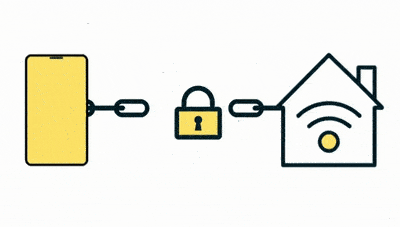Compare Prepaid Cell Phone Plans in Canada
We’ve been helping Canadians find the right phone plan for over a decade Prepaid cell phone plans have become the preferred choice for many, and we’ve searched for the best options so you don’t have to.
Take a look at the prepaid plan options below.
Best Prepaid Phone Plans In Canada - BYOD for December 2025
- Affordability: These prepaid phone plans are priced to fit your budget while providing excellent value.
- Technology: Our selections prioritize plans that utilize the latest 5G technology, ensuring fast and reliable connectivity.
- Quantity/Price Ratio: We’ve assessed the balance between the amount of data, talk time, and text included in each plan relative to its cost.
- Coverage: We have evaluated the network coverage to ensure reliable service in your area and when traveling.
- Customer Service: We have considered the quality of customer support provided by the provider.

BYOD

BYOD

BYOD
Cheapest Prepaid Phone Plans In Canada - BYOD for December 2025

BYOD

BYOD

BYOD
FAQs about Prepaid Cell Phone Plans
What are the Advantages of a Prepaid Cell Phone Plan?
Choosing a prepaid cell phone plan offers several advantages:
- No Credit Check Required: Unlike postpaid plans, prepaid plans do not require a credit check. This makes them an excellent choice for individuals with low or no credit scores.
- Cost Control: With a prepaid cell phone plan, you pay in advance for your service, helping you avoid unexpected charges and overage fees.
- Flexibility: Prepaid plans often do not require long-term contracts, allowing you to change or cancel your plan without penalty.
- Budget-Friendly: Prepaid plans are typically more affordable and offer various options to suit different budgets and usage patterns.
- No Hidden Fees: Since you pay upfront, there are fewer chances of encountering hidden fees or additional charges.
Who Might Prefer a Prepaid Cell Phone Plan?
Several groups may find a prepaid cell phone plan particularly beneficial:
- Young Adolescents: Parents often choose prepaid plans for their children to limit monthly spending and avoid overage charges.
- Newcomers: Individuals who are new to a country may not have an established credit history, making prepaid plans a suitable option.
- Victims of Bankruptcy: People who have gone through bankruptcy may have difficulty qualifying for postpaid plans due to poor credit scores, making prepaid plans a practical alternative.
- Travelers: Prepaid plans can be a good option for travelers who want to avoid international roaming charges or need temporary local service in a different country.
- Minimal Users: People who use their phones sparingly may find prepaid plans more cost-effective.
- Those Seeking Flexibility: Prepaid plans offer flexibility without long-term contracts, making them attractive to those who may want to switch plans or providers frequently.
Additional Considerations for Prepaid Cell Phone Plans
- Variety of Plans: Many prepaid providers offer a range of plans with different amounts of talk time, text, and data, allowing you to choose a plan that best fits your needs.
- No Contracts: Prepaid plans typically do not bind you to long-term contracts, providing the flexibility to switch carriers or plans as needed.
- Coverage and Service Quality: Many prepaid plans use the same networks as major carriers, so you can often get the same coverage and service quality at a lower cost.
Conclusion
A prepaid cell phone plan offers a practical and flexible solution for those looking to manage their phone expenses without the commitment and potential financial pitfalls of postpaid plans. Whether you are managing your budget, building credit, or simply looking for a hassle-free mobile experience, prepaid plans provide a viable and often advantageous alternative.
What are the Main Differences Between Prepaid and Postpaid Phone Plans?
Prepaid and postpaid phone plans each have their own distinct features and advantages. Here are the primary differences:
Payment Structure:
- Prepaid: You pay in advance for your phone service. You load your account with a specific amount of money, and that balance is used for your calls, texts, and data until it runs out.
- Postpaid: You receive a monthly bill for your phone service after you have used it. This bill includes charges for your calls, texts, and data used during the billing period.
Credit Requirements:
- Prepaid: No credit check is required. This makes prepaid plans accessible to those with no credit history or poor credit scores.
- Postpaid: A credit check is usually required to qualify for a postpaid plan. Good credit is often necessary to secure the best rates and deals.
Cost Control:
- Prepaid: Offers greater control over expenses since you pay upfront and can only use the amount of service you have paid for. There are no surprises or unexpected charges.
- Postpaid: Can lead to unexpected charges if you exceed your plan’s limits on calls, texts, or data. Overage fees and additional costs can apply.
Flexibility:
- Prepaid: Typically does not require a long-term contract. You can change or cancel your plan at any time without penalties.
- Postpaid: Often involves a long-term contract (usually one or two years). Early termination fees may apply if you decide to cancel the service before the contract ends.
Plan Options and Features:
- Prepaid: Plans are often straightforward and include basic features. There are usually fewer perks compared to postpaid plans.
- Postpaid: Plans often come with more features and perks, such as bundled services, international calling, and premium customer support. Postpaid customers might also get access to the latest phones through financing or leasing options.
Usage Monitoring:
- Prepaid: Usage is limited to the amount paid for in advance. If you run out of credit, you need to top up to continue using the service.
- Postpaid: You can use services throughout the billing cycle and receive a bill at the end. Usage can be tracked through your account or service provider’s app.
Conclusion
Choosing between a prepaid cell phone plan and a postpaid plan depends on your financial situation, credit history, and personal preferences. Prepaid plans offer simplicity, cost control, and flexibility without long-term commitments, making them ideal for budget-conscious users and those with poor or no credit. Postpaid plans, on the other hand, often provide more features and perks but come with the obligation of a contract and the potential for unexpected charges. Understanding these differences can help you select the plan that best fits your needs and lifestyle.
What's Important to Know Before Choosing a Prepaid Cell Phone Plan
While prepaid cell phone plans offer many benefits, there are some potential downsides to consider:
- Limited Features and Perks: Prepaid plans often lack the additional features and perks that come with postpaid plans, such as unlimited data, international calling packages, and access to premium services.
- Higher Cost per Unit: The cost per minute, text, or megabyte of data may be higher with prepaid plans compared to postpaid plans. This can be especially true for heavy users who may find better value in postpaid plans.
- Upfront Payments: You must pay in advance for your usage. This means you need to have the funds available upfront, which can be less convenient for some people compared to paying at the end of the month.
- Limited Phone Options: Prepaid plans often do not include the latest phone models through financing or leasing options. You may need to purchase a phone outright, which can be expensive.
- Not Building Credit Score: Prepaid plans do not contribute to building your credit score. Since there is no credit check or monthly billing cycle reported to credit bureaus, using a prepaid plan won’t help improve your credit history.
- Potential Service Limitations: Some prepaid plans might have limited network access or slower data speeds compared to postpaid plans. This can affect the quality and reliability of your service.
- Frequent Top-Ups Needed: You need to monitor your usage and ensure your account is topped up regularly. If you run out of credit, your service will be interrupted until you add more funds.
Conclusion
While a prepaid cell phone plan offers flexibility and control over your expenses, they come with certain disadvantages. Limited features, higher costs per unit, upfront payments, and the inability to build your credit score are some of the downsides to consider. Additionally, you may face service limitations and the need for frequent top-ups. Weighing these factors against the benefits can help you determine if a prepaid plan is the right choice for your needs.
Which Provider offer prepaid phone option in Canada?
Here is a list of Canadian phone carriers that offer prepaid cell phone plans, ordered alphabetically:
- Bell Mobility: Provides a variety of prepaid plans with different options for data, talk, and text. Go to Bell Prepaid cell phone page →
- Chatr Mobile: Owned by Rogers, offers simple and affordable prepaid plans with nationwide talk, text, and data options. Go to Chatr Mobile Prepaid cell phone page →
- Fido: A subsidiary of Rogers, offers prepaid plans with options for unlimited talk and text and data add-ons. Go to Fido Prepaid cell phone page →
- Freedom Mobile: Offers prepaid plans with competitive data, talk, and text options, and robust network coverage in urban areas. Go to Freedom Mobile Prepaid cell phone page →
- Koodo: Another Telus subsidiary, offers prepaid plans with various data, talk, and text packages. Go to Koodo Prepaid cell phone page →
- Lucky Mobile: A subsidiary of Bell, provides prepaid plans tailored to budget-conscious consumers, with options for unlimited talk, text, and data. Go to Lucky Mobile Prepaid cell phone page →
- Petro-Canada Mobile: Offers prepaid plans with a pay-as-you-go approach, suitable for those looking for basic mobile service. Go to Petro-Canada Mobile Prepaid cell phone page →
- Public Mobile: A Telus flanker brand, offers budget-friendly prepaid plans with flexible talk, text, and data options. Go to Public Mobile Prepaid cell phone page →
- Rogers: Provides several prepaid plans with customizable options for data, talk, and text. Go to Rogers Prepaid cell phone page →
- Telus: Offers prepaid plans with nationwide coverage and options for data, talk, and text. Go to Telus Prepaid cell phone page →
- Virgin Plus: Provides prepaid plans with flexible options for data, talk, and text. Go to Virgin Plus Prepaid cell phone page →
These carriers provide a wide range of prepaid plans, ensuring there are options to suit different needs and budgets without the need for a long-term contract.
How do prepaid mobile plans work?
1- Bring or Choose a Phone: First, you need a mobile phone that is compatible with the prepaid plan you intend to use. You can either bring your own unlocked phone or purchase a new one directly from the prepaid service provider.
2- Choose a Plan: Select a prepaid plan that suits your needs. Plans vary in terms of the amount of talk time, text messages, and data included. You can typically find plans that offer daily, weekly, or monthly allowances.
3- Insert and Activate Your SIM: Once you have your phone and chosen plan, you will receive a SIM card from the service provider. Insert the SIM card into your phone and follow the activation instructions, which may involve calling a specific number or entering an activation code.
4- Recharge When Your Credit is Low: Prepaid plans require you to add credit to your account to keep using the service. When your credit runs low, you can recharge your account by purchasing additional credit online, through an app, or at retail locations. This keeps your phone service active and allows you to continue making calls, sending texts, and using data.
5- Change Providers Whenever You Want: One of the key advantages of prepaid plans is flexibility. There are no long-term contracts, so you can change service providers whenever you want. If you find a better deal or are unsatisfied with your current provider, you can switch to a new one without any penalties. Just get a new SIM card from the new provider and repeat the activation process.



 Chat with
Chat with 
